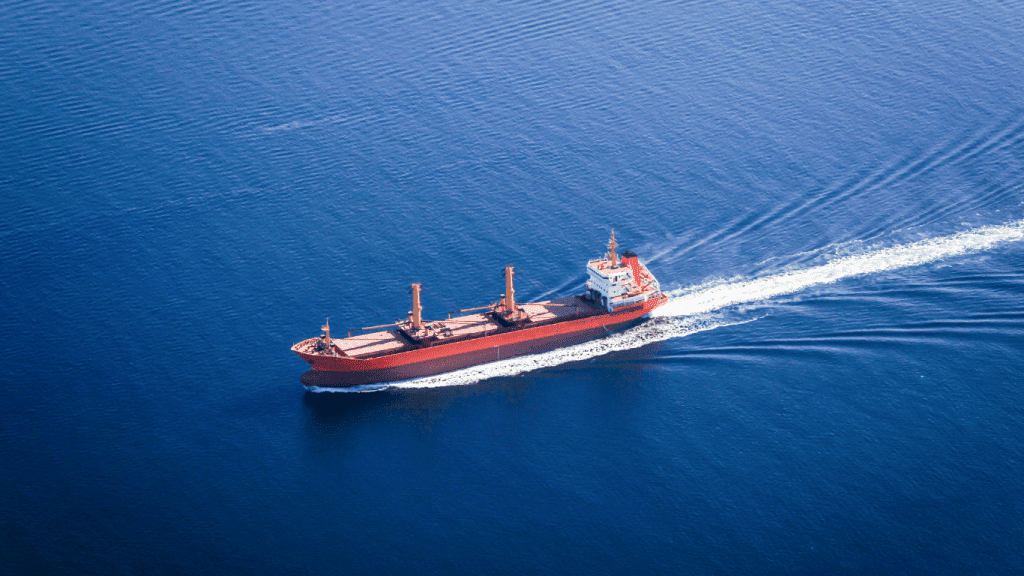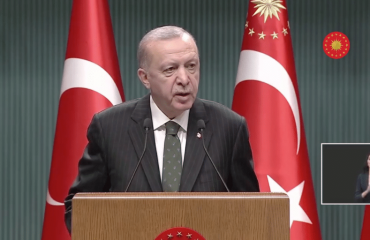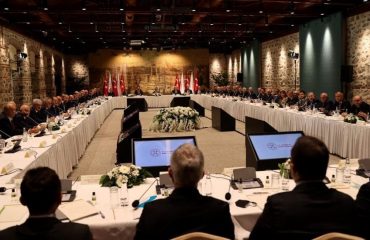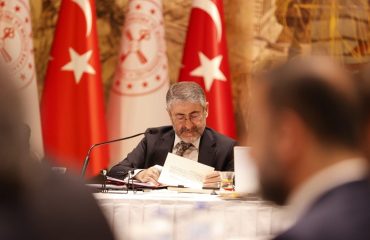

Turkish President Tayyip Erdoğan announced that the Black Sea Grain Initiative, signed by Russia and Ukraine under the auspices of the United Nations and with the facilitation of Türkiye, would be extended for 120 days as of November 19.
After Ukraine’s President, Vladimir Zelenski, said that his country had come to an agreement with the UN and Turkey on how to fight the food crisis, Turkey’s President, Recep Tayyip Erdogan, announced on November 17, that the initiative, which was supposed to end on November 19, has been extended for 120 days.
“In accordance with the resolution reached by Türkiye, the UN, the Russian Federation, and Ukraine, the Black Sea Grain Initiative was extended for an additional 120 days beginning November 19, 2022, as a result of the quadrilateral discussions hosted by Türkiye,” Erdogan said in a message posted on his Twitter account on November 17.
“With the delivery of more than 11 million tonnes of grains and foodstuffs to those in need via approximately 500 ships over the past four months, the significance and benefits of this agreement for the food supply and security of the world have become evident. I would like to thank United Nations Secretary-General António Guterres, President Putin of Russia, and President Zelensky of Ukraine, for their willingness to prolong the agreement, and I would also like to congratulate all those who contributed,” Erdoğan’s message read.
Statement from Ukraine
The first statement on the subject came from the President of Ukraine Zelensky on November 17 through his social media account.
“Grain Deal will be prolonged for 120 days. Ukraine together with @antonioguterres and @RTErdogan made key decision in the global fight against the food crisis. Waiting for official announcement from partners – Türkiye and UN,” Zelensky’s social media message read.
After Zelensky’s announcement, Oleksandr Kubrakov, the Infrastructure Minister of Ukraine, said that the Black Sea Grain Agreement would be extended for 120 days.
“President Zelenski, President Recep Tayyip Erdoğan and Turkish Defense Minister Hulusi Akar and UN Secretary General António Guterres have taken another important step towards the global food crisis,” Kubrakov said in a statement.
In its statement, the Ministry emphasized that the guarantor role of Turkey and the UN continues.
Guterres: “I welcome the agreement”
The Secretary General of the United Nations Antonio Guterres welcomed the deal in a statement.
“I welcome the agreement by all parties to continue the Black Sea Grain Initiative to facilitate the safe navigation of export of grain, foodstuffs and fertilizers from Ukraine. The initiative demonstrates the importance of discreet diplomacy in finding multilateral solutions,” Guterres’ message read.
“As the quad meeting agreed on the renewal of the BSGI, I want to express my deep appreciation to @RTErdogan & Türkiye. Without their generosity & commitment this initiative would never have been born. Istanbul remains the centre of a remarkable diplomatic achievement,” UN Secretary-General added.
Russia suspended the deal
After the Russian invasion of Ukraine, the grains waiting on the Ukrainian shores triggered the global food crisis.
The grain shipment from Ukraine, which is the fifth largest grain exporter in the world, is of critical importance for countries such as Somalia, Syria and Libya.
After the negotiations that started in May for the resumption of exports, an agreement was reached for the grain initiative in Istanbul on July 22, under the auspices of the United Nations and with the facilitation of Turkey.
The initiative, in which Russia and Ukraine signed two separate agreements, was to end on November 19.
While exports from Ukraine continued, the fact that Russia did not ship food products due to US and EU sanctions caused Russia to send messages that it would not extend the agreement.
Russia announced on October 31 that it suspended the grain agreement after Ukraine’s attack on Russian troops in Crimea, and shipments resumed after intense diplomatic contacts.
Russia continues to demand that food and fertiliser products be excluded from sanctions.


